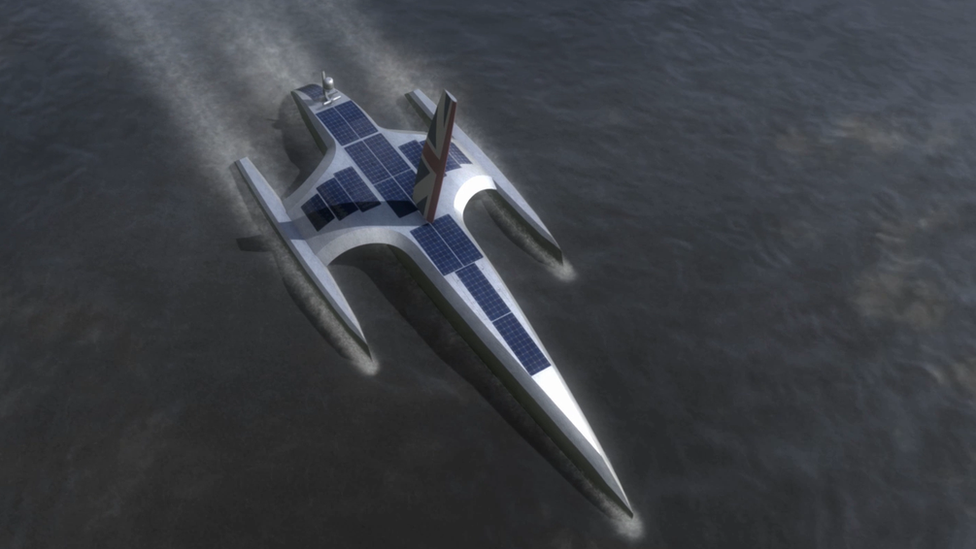Gwynedd: Robot sailboat invention to get sea weather data
- Published
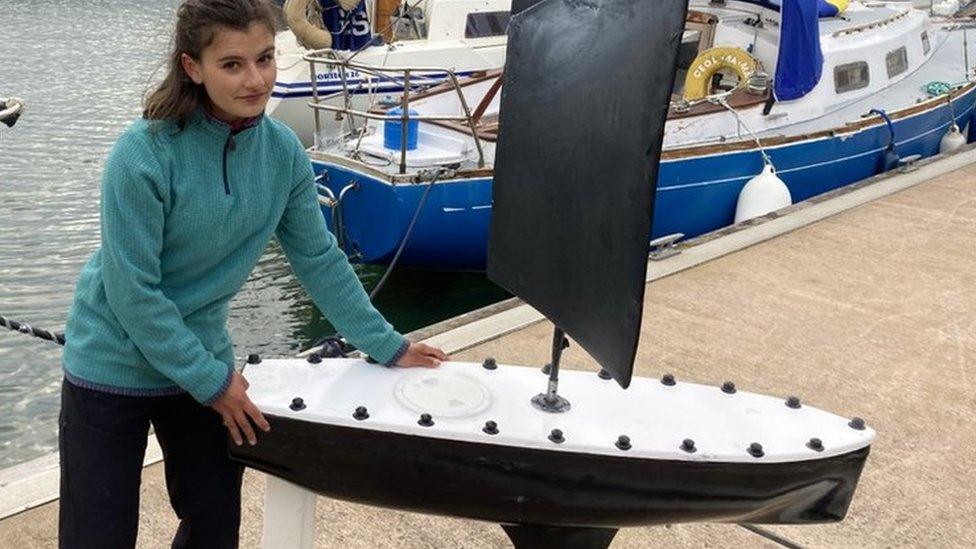
Anahita Laverack moved to Wales from London to trial a 1.2m (3.9ft) prototype called Oshen
A self-sailing robot boat that can predict the weather has been built by a pair of 23-year-old inventors.
Anahita Laverack and her business partner Ciaran Dowds, who live together on a boat in Caernarfon, Gwynedd, raised £100,000 to fund the project.
They hope it will change the game in our understanding of the relationship between the sea and weather.
The money raised means they can build a total of 10 craft to capture data from the waves.
Ms Laverack said: "The ocean has a huge impact on our weather systems, yet we don't have enough information about what's happening."
The vessel, called Oshen, is 1.2m (3.9ft) long, weighs 50kg (110lb) and can collect data without human help.
London-born Ms Laverack moved to Wales to pursue her ambition of putting her invention to use, and said she believes she is in the best location to make it a success.
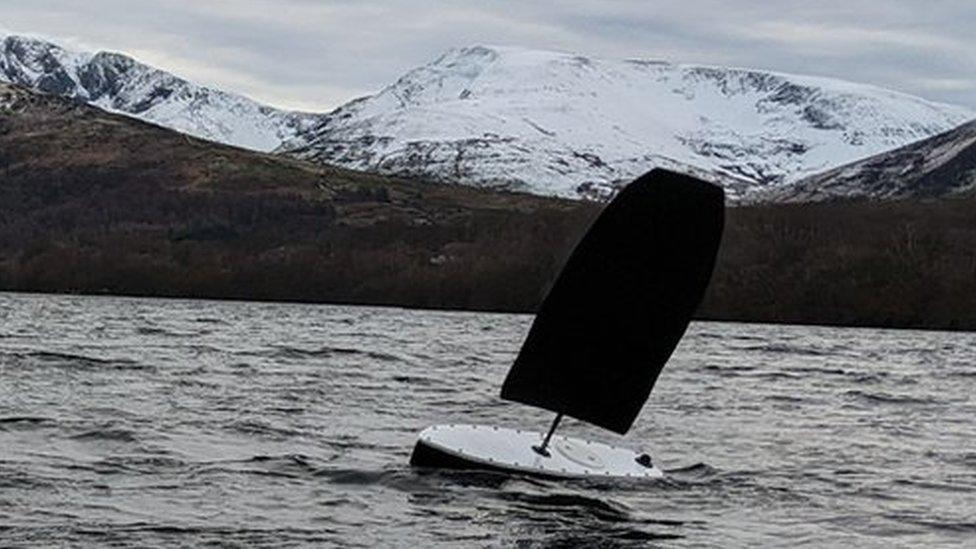
It's hoped the self-sailing craft can one day replace the thousands of drifting plastic buoys used to gather weather data
"It's a nicer place to be a small start-up company," she said.
"People are more likely to help you here, because it's a small community," she said.
"And as a small business, you need a bit of help."
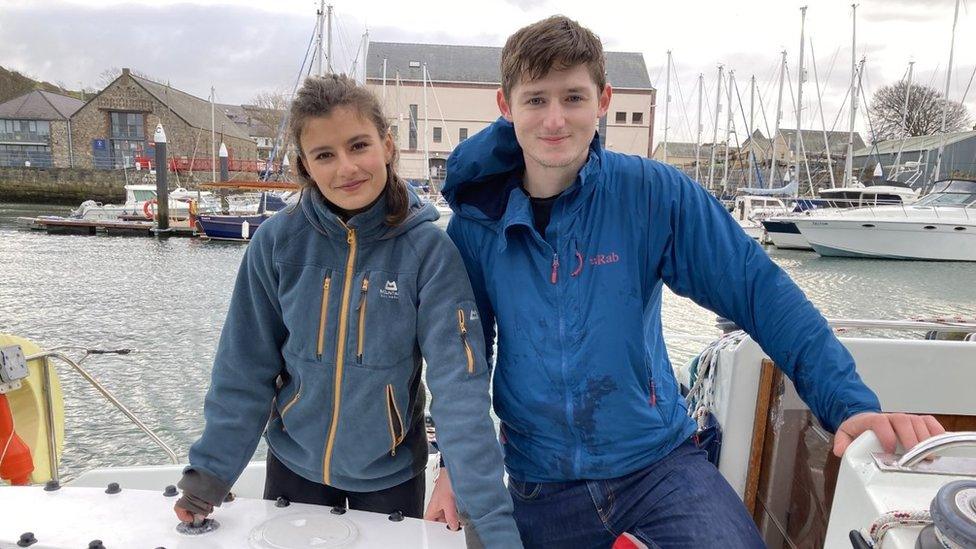
Anahita Laverack and business partner Ciaran Dowds raised £100,000 to try to build 10 robot boats
Even if the firm expands she plans to stay in Wales.
"We have everything we need here," she said.
"I'm not sure what we'll need in the future that Caernarfon can't provide."
She hoped her work would transform industries like shipping and defence that need information about the sea.
The current reliance on plastic buoys for data, she said, had to change.
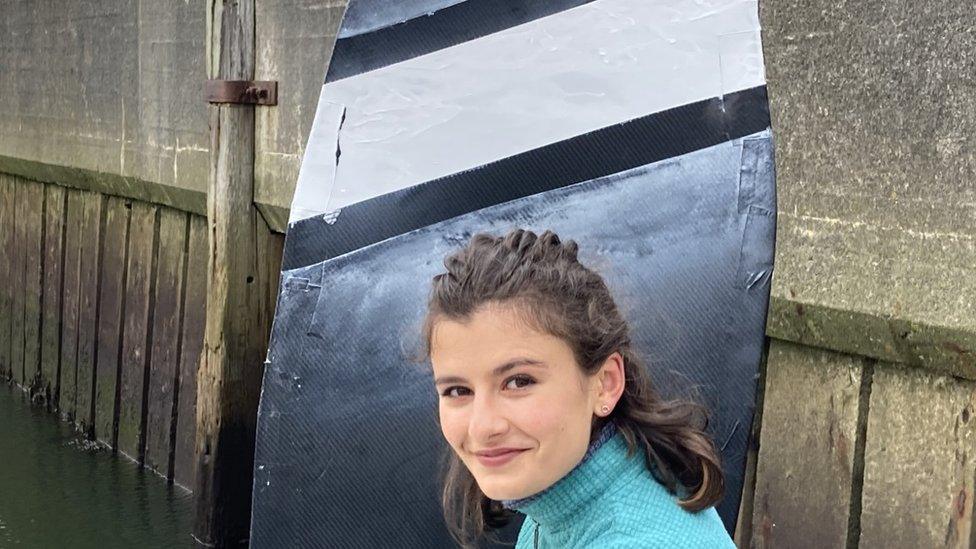
Anahita Laverack won a young innovator award to develop the project
"There are currently over 1,000 drifting buoys out there, but they're unsustainable," she said.
Ms Laverack has won a young innovator award for her work, £5,000 to develop the project and an allowance to cover living costs. Cash has also come from the European Space Agency.
Technological first
The pair have tested Oshen in waters including Cardigan Bay, near Aberystwyth, in Ceredigion, and Llyn Padarn, Gwynedd.
The plan is to do testing further out in the Atlantic Ocean by the end of 2023.
She has her fingers crossed for success.
"It'll be a world technological first if we do it," she said.
- Published13 June 2022

- Published16 September 2020
